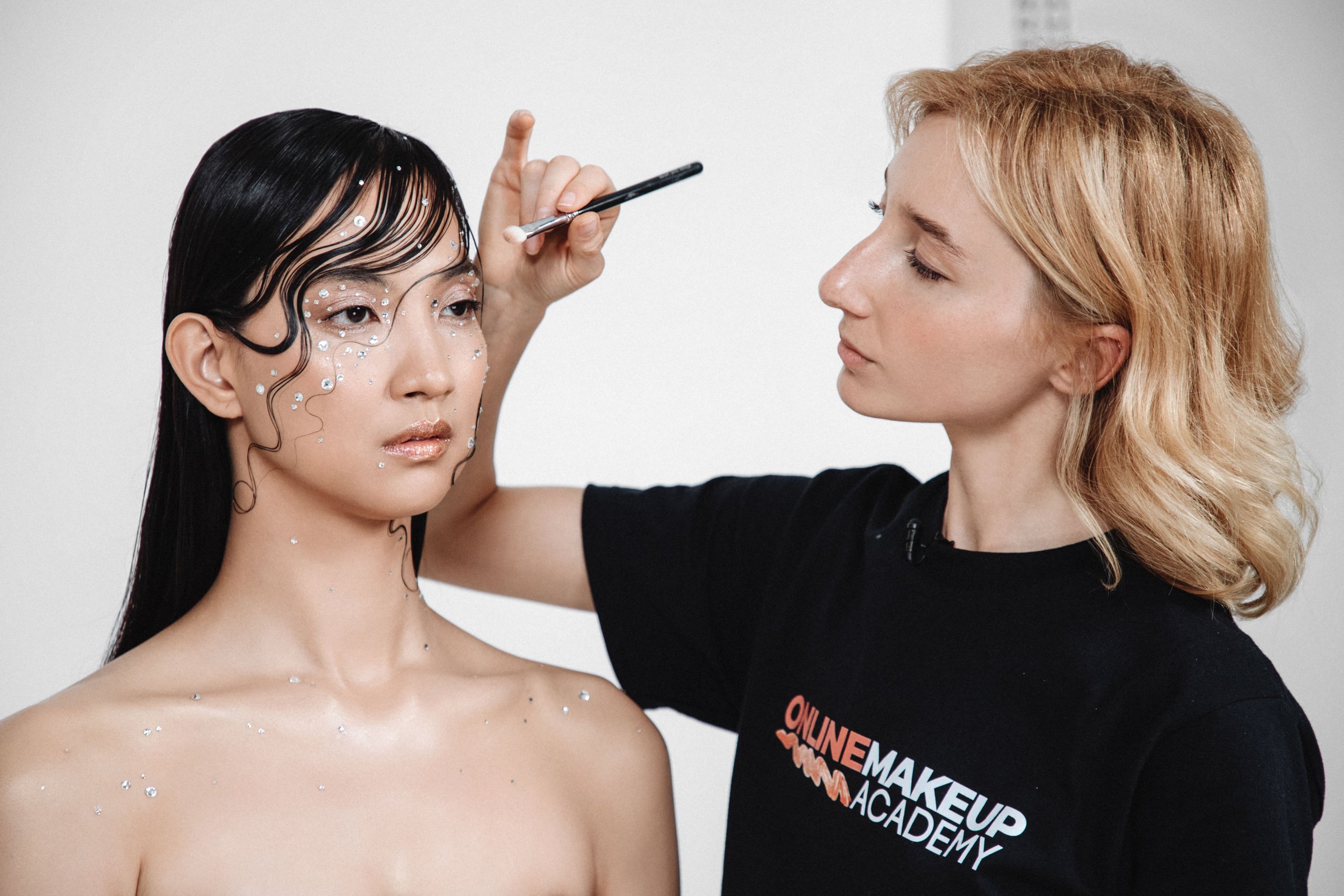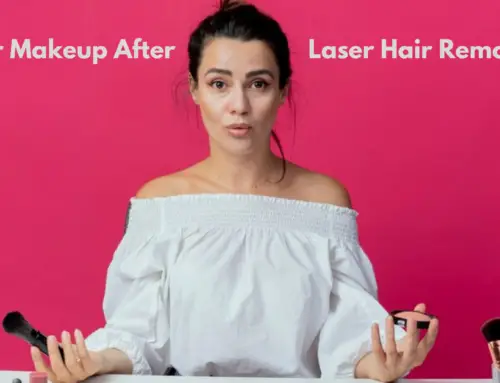When it comes to the world of makeup, one might assume that a license is not necessary. However, this couldn’t be further from the truth. In fact, in many jurisdictions, a makeup artist is required to have a license in order to practice professionally. It’s a surprising fact that highlights the importance of proper training and expertise in this field.
The need for a license to do makeup stems from the potential risks involved. Makeup products, if used incorrectly, can lead to various skin issues and allergies. Additionally, makeup artists often work with clients who have specific needs or medical conditions that require specialized knowledge and techniques. By having a license, makeup artists can demonstrate their competency and ensure the safety and satisfaction of their clients.
In most cases, you don’t need a license to do makeup as a freelance artist. However, if you plan to work in certain professional settings like salons or spas, a cosmetology or esthetician license may be required. It’s important to check your local regulations and requirements to ensure compliance. Regardless of licensing, investing in professional makeup training and certifications can enhance your skills and credibility in the industry.

Do You Need a License to Do Makeup?
Makeup artistry has become an immensely popular and lucrative profession, with countless individuals pursuing their passion for cosmetics. However, one question that often arises is whether a license is required to do makeup professionally. In this article, we will explore the topic of licensing in the makeup industry and provide comprehensive information on the subject.
Understanding Makeup Licensing
The requirements for obtaining a makeup license can vary depending on the location and the specific services you plan to offer. In some regions, a cosmetology or esthetician license may be necessary, while in others, a specific makeup artist certification suffices. It’s essential to research and understand the regulations in your area to ensure compliance with the law.
In many cases, a cosmetology license encompasses the application of makeup. Cosmetology programs typically cover various beauty-related services, including hair, nails, skincare, and makeup. These programs often require several hundred hours of training and education, as well as passing a state licensing exam.
On the other hand, esthetician licenses primarily focus on skincare and facial treatments, including makeup application. Esthetician programs provide in-depth training on skincare techniques and often involve fewer training hours compared to cosmetology programs. However, the specific requirements may vary depending on the state or country.
Additionally, some regions have specific makeup artist certifications that may not require completion of a full cosmetology or esthetician program. These certifications typically focus solely on makeup application and may have fewer training hour requirements. It’s crucial to investigate whether such certifications are recognized and accepted by the industry in your area.
Benefits of Obtaining a Makeup License
While licensing requirements may vary, there are several advantages to obtaining a makeup license:
- Licensing provides credibility and validates your skills and expertise as a makeup artist.
- Having a license enhances your professional image and can help you attract more clients.
- Some employers and companies may require a makeup artist to hold a valid license to work with them.
- Licensing can open doors to opportunities such as working in spas, salons, or even the film and fashion industry.
- With a license, you can confidently market yourself as a trained and qualified makeup artist.
The Costs and Steps of Obtaining a Makeup License
Obtaining a makeup license can involve some costs and steps. Here are the general procedures to follow:
| Research and Understand | Research the specific regulations in your area to determine whether a cosmetology license, esthetician license, or makeup artist certification is required. |
| Training | Enroll in a recognized cosmetology or esthetician program or pursue a makeup artist certification. These programs often involve classroom instruction, hands-on training, and practical experience. |
| Complete Required Hours | Fulfill the required training hours and curriculum as specified by the licensing board or certifying body. This may range from a few hundred to a couple of thousand hours, depending on the program. |
| State Licensing Exam | Pass the state licensing exam, which typically assesses both theoretical knowledge and practical skills. The exam format may differ depending on the license type. |
| Apply for License | Submit an application for a cosmetology license, esthetician license, or makeup artist certification, along with any required documentation and fees. |
| Continuing Education | Stay updated with industry trends, techniques, and regulations by participating in continuing education courses and workshops. |
Is a Makeup License Always Required?
The need for a makeup license can vary depending on the context in which you plan to work. While many regions and employers require a license, there are situations where it may not be mandatory. For example:
- Freelance Makeup Artists: If you plan to work solely as a freelance makeup artist, you may not be required to have a license. However, it’s crucial to check local regulations and industry standards.
- Personal/Non-Professional Use: If you are applying makeup for personal use or for friends and family without charging a fee, a license may not be necessary. However, keep in mind that professional training and certification can still enhance your skills.
- Non-Regulated Areas: Some areas or countries may not have specific licensing requirements for makeup artists. However, focusing on improving your skills and knowledge through training is always beneficial.
Ultimately, it’s important to assess your goals and the legal requirements in your area when deciding whether to pursue a makeup license. Regardless of licensure, investing in professional training and continuously improving your skills can make a significant difference in your career as a makeup artist.
Conclusion
In conclusion, the need for a license to do makeup depends on various factors such as the region, specific services offered, and employment requirements. Licensing provides credibility, enhances professional opportunities, and validates the expertise of makeup artists. However, there are situations where a license may not be mandatory, such as freelance work or personal use. It is essential to research and understand the regulations in your area to ensure compliance with the law and make informed decisions about pursuing a makeup license.
Key Takeaways: Do You Need a License to Do Makeup?
- Most places do not require a formal license to do makeup as a profession.
- However, obtaining a cosmetology or esthetician license can provide credibility and open up more opportunities.
- Makeup artist certification programs can also enhance your skills and knowledge.
- It’s important to check the specific requirements in your area before starting a makeup business.
- Always prioritize safety, hygiene, and professionalism in your makeup practice.
Frequently Asked Questions
In the world of makeup artistry, there are often questions about whether or not a license is required to practice professionally. Here, we provide answers to some of the most common inquiries regarding the need for a makeup license.
1. Is it necessary to have a license to do makeup?
No, in most places, it is not necessary to have a license to do makeup. Unlike other beauty professions like hairstyling or esthetics, the makeup industry does not typically require a formal license or certification. However, it is important to gain proper training and education in order to provide high-quality services and build a successful career as a makeup artist.
While a license may not be mandatory, it is recommended to enroll in makeup courses or programs to learn various techniques, product knowledge, and hygiene practices. This will not only enhance your skills but also ensure that you are well-equipped to meet the needs and expectations of your clients.
2. Are there any exceptions to the license requirement?
While a license may not be required to do makeup professionally, there are some exceptions in certain states or countries. Some jurisdictions may have specific regulations in place, especially when it comes to working in a salon or spa environment. It is important to research and familiarize yourself with the specific requirements in your area before starting your career as a makeup artist.
Additionally, if you plan to work in the film, television, or theater industry, there may be certain union regulations or guidelines that require makeup artists to be licensed. These regulations aim to maintain industry standards and ensure the safety and well-being of performers.
3. What are the benefits of obtaining a makeup license?
While a license may not be mandatory, obtaining one can offer several advantages in your makeup artistry career. Firstly, it provides credibility and establishes you as a professional in the field. Clients often feel more confident and trusting when they know you have received formal training and have met certain industry standards.
Having a license can also open up more opportunities for you, especially if you plan to work in a salon, spa, or corporate setting. Some employers may require a license as a prerequisite for employment. Additionally, being a licensed makeup artist allows you to network with other professionals in the industry and potentially collaborate on larger-scale projects.
4. How can I gain the necessary skills and knowledge without a license?
Even without a license, there are various ways to gain the necessary skills and knowledge to excel as a makeup artist. Consider enrolling in reputable makeup schools or programs that offer comprehensive training. These courses often cover a wide range of topics including color theory, skincare, application techniques, and business skills.
You can also take advantage of online resources, such as tutorials and educational videos, to expand your knowledge and learn new techniques. Practice regularly and experiment with different looks to improve your skills. Additionally, attending makeup workshops, conferences, and industry events can provide valuable networking opportunities and further enhance your expertise.
5. How can I ensure the safety and hygienic practices as a makeup artist?
As a makeup artist, it is essential to prioritize the safety and well-being of your clients. Even without a license requirement, practicing proper hygiene practices is crucial. Here are some steps you can take:
1. Always sanitize your tools and products before and after each use.
2. Use disposable applicators and brushes whenever possible.
3. Clean and disinfect your makeup kit regularly.
4. Educate your clients about proper skincare and hygiene practices.
By following these practices, you can ensure a safe and hygienic environment for your clients and maintain a professional reputation in the industry.

In most places, you do not need a license to do makeup as a hobby or for personal use.
However, if you want to work as a professional makeup artist, it’s important to check the regulations in your area as some places may require a license or certification.






Leave A Comment